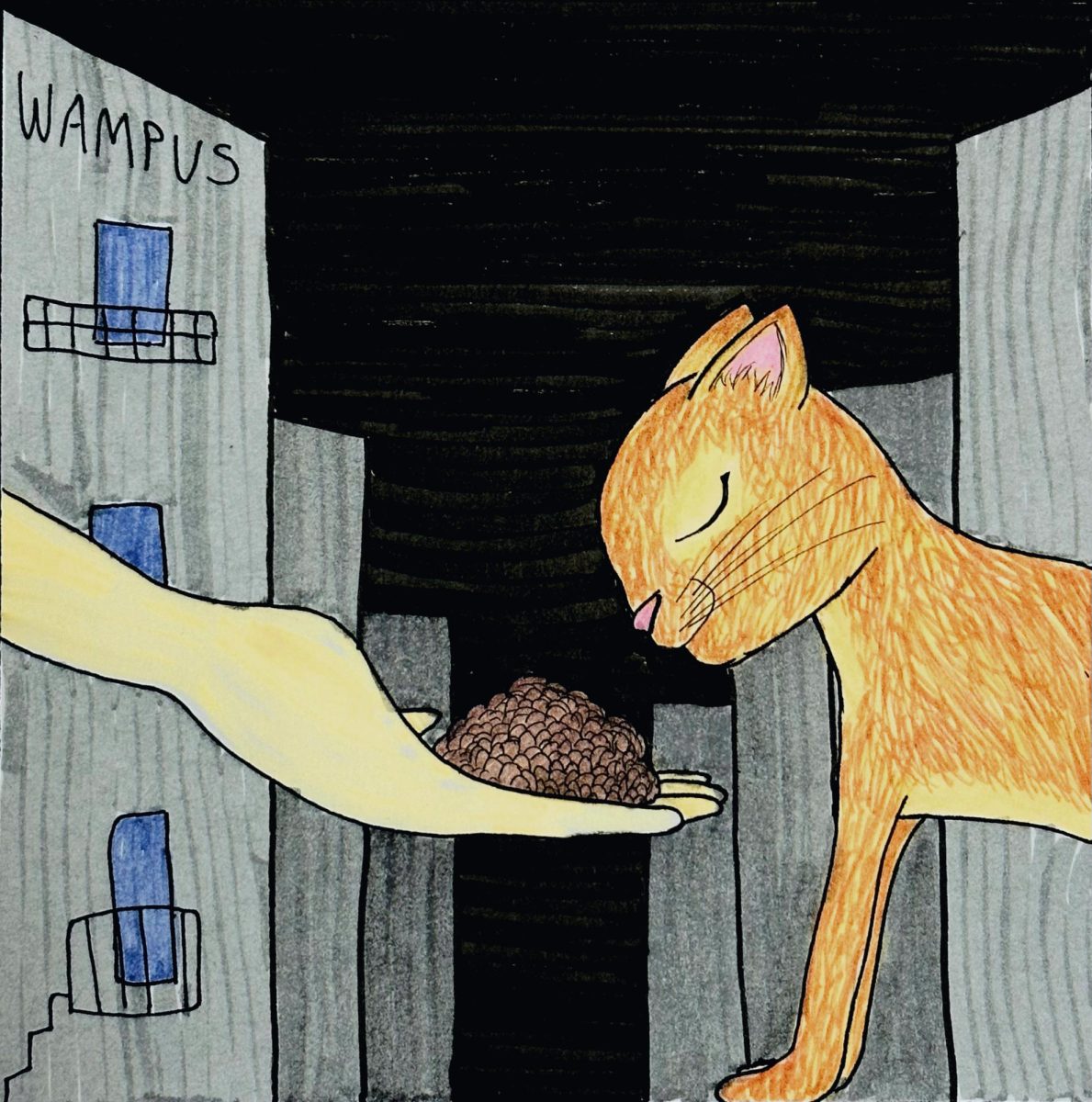Cats of West Campus, a project created by UT employees, started a “food-raiser” in an attempt to gain resources for feeding cats around campus.
The project, originating from Christina Huizar and Patrick Parker, started about nine years ago and aims to provide food for cats at the University and in West Campus. While Huizar said a network of volunteers helps feed the cats, she and Parker do the majority of the work.
“We feed (the cats) every day, 365 days a year,” Huizar said. “It doesn’t matter what else we’re doing. We are always out there feeding the cats in the evening so that consumes the bulk of our time. The other free time we have, we run our Facebook group to try to get cats adopted (and) run food-raisers.”
Huizar said this year was particularly tough for feeding the cats. She said she and Parker started taking care of new colonies and needed to ask for food more frequently due to decreased donations.
“We did have several people send things, so we’re not in immediate danger of running out of food,” Huizar said. “We do not have enough to carry us through the winter though, so we do need more donations to see us through the coldest months.”
Huizar and Parker give not only a lot of their time to the cause but also a lot of their personal resources, said Maria Zoller, Cats of West Campus affiliate.
“This organization is run by UT staff members who are just doing the thing themselves,” said Zoller, senior academic program coordinator for Testing and Evaluation Services. “That means their time, their resources, their earnings, their everything.”
Aside from collecting food for and feeding the cats, Cats of West Campus also specializes in Trap-Neuter-Return, which is the project’s effort to keep the population of cats down by spaying or neutering them, and then safely releasing them back into the area.
“They’re doing a lot more than (feeding) that is really helpful to the cats that are currently there,” Zoller said. “(It’s) keeping more cats from being there, which is good for the environment. (It’s) good for kittens that aren’t going to have to tough out that environment.”
Looking into the future, Huizar said she hopes to build a bigger network of people willing to regularly volunteer, as well as find students who can eventually carry on the goals of the project.
“It can’t be something that starts with us and ends with us,” Huizar said.














